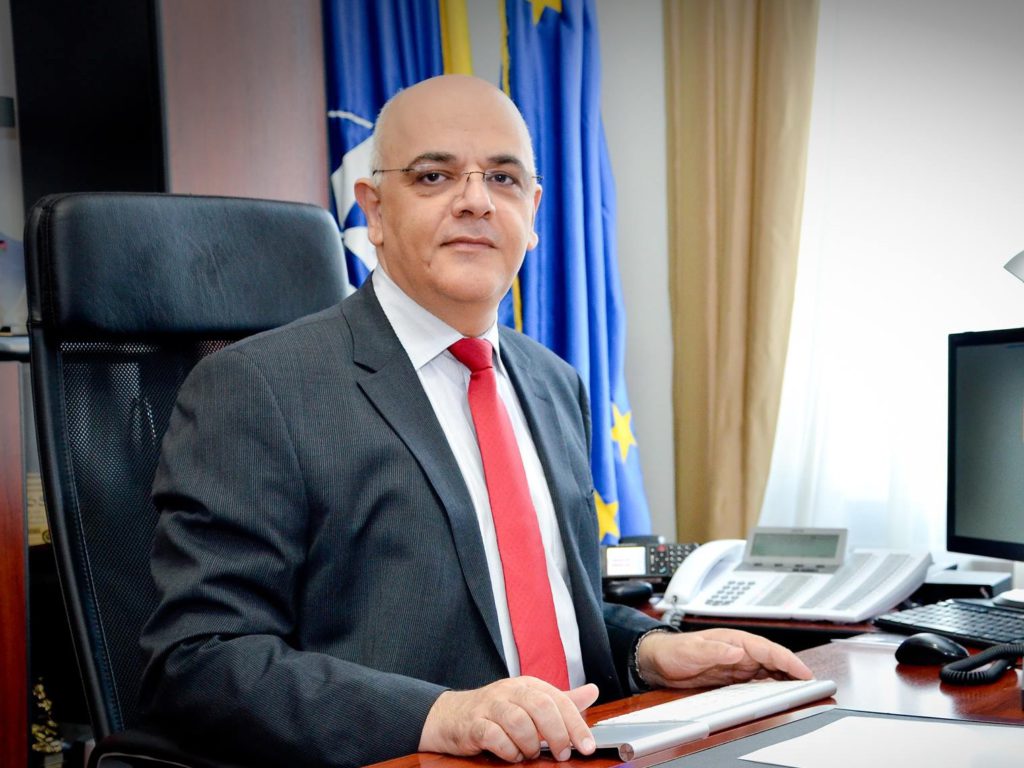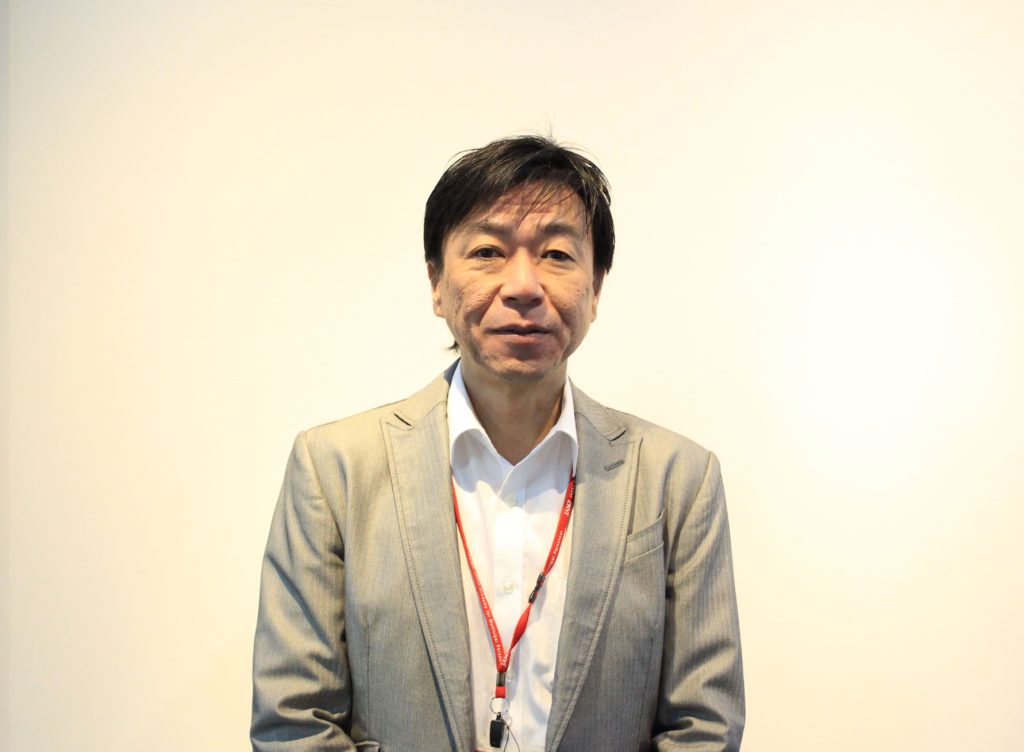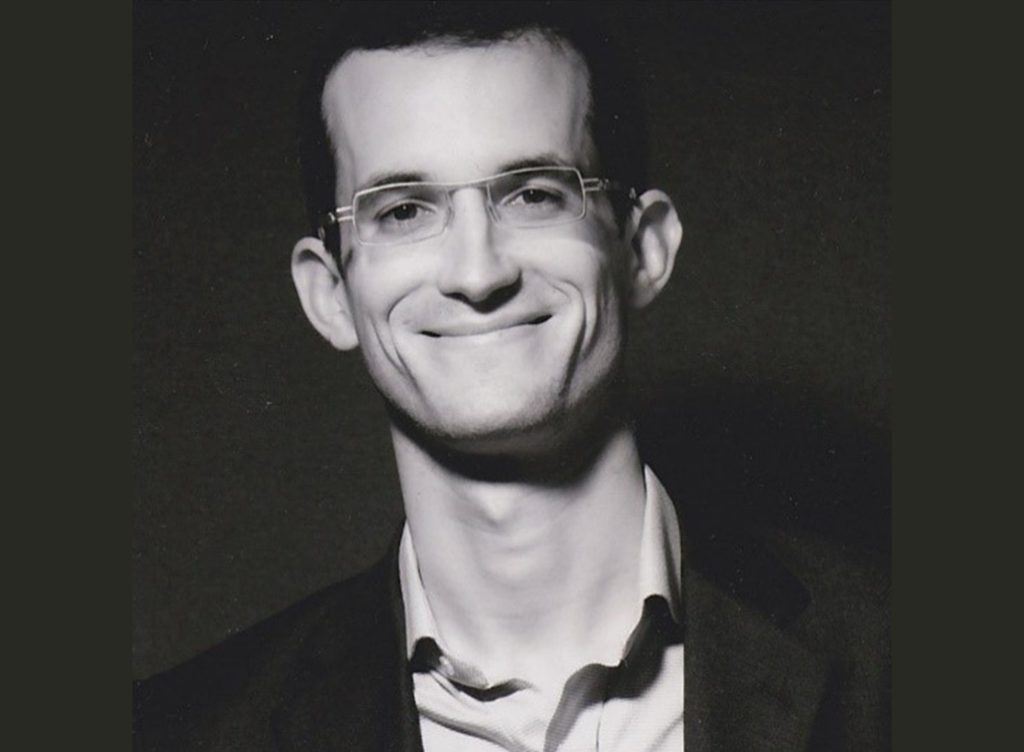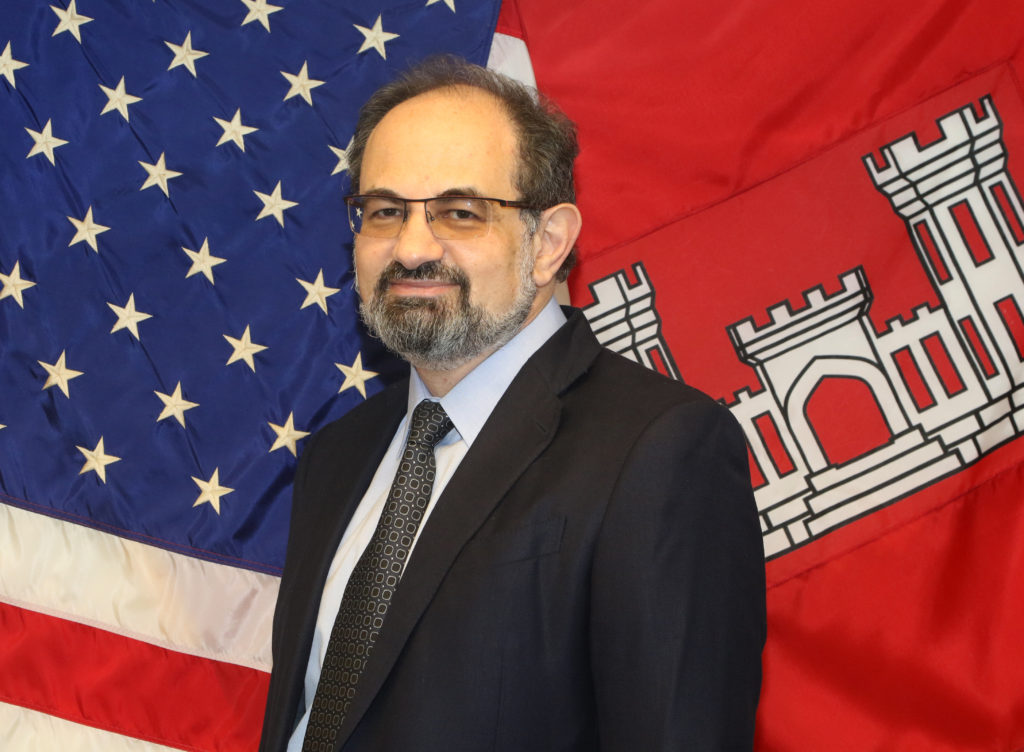Keynote Speakers

Dr. Raed Arafat
Secretary of State
Head of the Department for Emergency Situations, Ministry of Internal Affairs, Romania
Being specialized in anesthesia and critical care and having a European Master in disaster medicine, Dr. Raed Arafat is the founder of Mobile Emergency Service for Resuscitation and Extrication (SMURD), that was established since 1990. Starting with 2007, he coordinated the activity of many institutional structures and strategic programmes for Emergency Situations, among them: Healthcare System for Emergencies and Disasters in the Ministry of Health, as well as the Department for Emergency Situations that coordinates the General Inspectorate for Emergency Situations, General Inspectorate of Aviation, Emergency Medical Services and Mountain Rescue in the Ministry of Internal Affairs.
Dr. Arafat has a wide experience in operational coordination of emergency services, he participated and organized numerous training courses and seminars in the field of emergency medical care, control and coordination of emergency services, emergency management, etc.
On the same line, Dr. Arafat is a member of several scientific and professional organizations in the field of emergency medicine and disaster medicine (both at domestic and international level), as well as author and co-author of several textbooks, books, documents and articles.
Dr. Raed Arafat received academic titles and distinctions conferred by prestigious, national and international organisms, such as Legion of Honour at the class of Chevalier offered by the President of France, International Emergency Medicine Leadership Award from American Academy of Emergency Medicine, National Order For Merit at the class of Chevalier and Officer offered by the President of Romania for the whole scientific and research activity, for the outstanding contribution to the development and promotion of information technology and communications in Romania.
Keynote speech:
Dealing with pandemics – Romanian Outbreak Response Framework in Covid–19 context
When the WHO started figuring out if COVID’19 should be called a pandemic at the begging of 2020, Romania was still discussing plans for a National Outbreak Response Framework.
However, few weeks earlier, the lack of necessary protective equipment for medical staff who could be involved in the treatment of highly contagious patients, was identified by Romanian responsible stakeholders as a vulnerability at the national level. That was the moment of deciding on a series of political, financial, social, and administrative measures aimed to ensure proper management of the incoming epidemic crises.
In the next 24 months the National Emergency Situations Committee (CNSU) was the responsible authority, at the national level, with the overall response. To prevent and combat the spread of the new coronavirus, Romanian authorities issued a series of presidential decrees, government ordinances, and decisions, but also orders and dispositions of the action commander – the head of the Department for Emergency Situations (DSU).
These measures, lead to a strengthened role of DSU as a key stakeholder in the management of crises in Romania.
In addition to the limiting measures meant to ensure the prevention of the spread of the virus, these legal acts were the basis for the development of the emergency medical stocks as reserves for operational interventions for the protection of the population.
The national response management was provided by the National Center for Coordination and Management of Intervention (CNCCI). Also, county centers for coordination and management of intervention were activated throughout the Romanian territory ensuring continuous information flow between the components of the National Emergency Management System.
At the same time, to demonstrate solidarity, Romania deployed medical teams in support to other countries, delivered in-kind assistance, and developed a medical stockpile under the rescEU (one of the tools developed under the umbrella of Union Civil Protection Mechanism).
Due to an aggressive fake news campaign that was promoted on social media and some news channels, the medical system in Romania was at its breaking point at the end of October 2021. This forced the Romanian authorities to seek assistance from other countries. Europe and the rest of the world were immediately united in action. We got further equipment and teams of practitioners with special skills who helped Romanian specialists when they were in the most need. Last but not least, we sent critically patients to hospitals in EU countries that were less affected by the crisis at the time.
Today, the National Outbreak Response Framework is the strategic planning document that is available to the members of the National Emergency Committee. It lays out how prevention and response measures will be put into place.
The Framework assumes that the following activities must be done to protect the lives and health of the population in the case of epidemics or an increased risk of epidemics:
- understanding the risks that communicable diseases pose to Romanian communities and society, as well as their potential to spread across borders and cause pandemics;
- make the population, government, and businesses more resilient;
- achieving accurate and timely public communication and information;
- establishing institutions in charge with decisions, coordination and monitoring the epidemics, as well as their roles and responsibilities;
- use all resources (information, human, financial and equipment) efficiently, effectively and in accordance with citizens’ expectations.
Key words: Covid pandemic, Department for Emergency Situations, National Outbreak Response Framework, coordination, preparedness, response, international cooperation

Dr. Fumihiko Inagaki
Vice Secretary of Nonprofit Organization “Hito-Frusato Kaiki” Support Center (U-turn Career Development Support Center)
Director of Chuetsu (Central Niigata Region) Disaster Reduction and Build Back Better Organization
Fumihiko Inagaki is a Graduate School of Engineering, Nagaoka Institute of Technology, Niigata Prefecture, Japan.
In 2002 Fumihiko Inagaki experienced Chuetsu Earthquake in 2002 and started a disaster -recovery voluntary team and then reorganized it into a long build back organization.
In 2005 he took the initiative to establish the “Chuetsu Build Back Citizen Association. He became the secretary general. Later this organization was reformed into a non-profit fund-based association (in partnership with the Niigata Prefecture.) This has long served as a special foundation to keep supporting financial and human leverages in the build back better processes of the disaster-stricken mountainous communities.
In 2011 Eastern Japan Earthquake he mobilized extensive human networks with other disaster related voluntary associations to immediately support disaster-stricken communities.
He received a national government request and special fund and took the initiative to train and educate young motivated people to engage with vitalizing processes of rural decline areas.
In 2021 he was invited to become the vice-secretary of Nonprofit Organization “Hito-Furusato Kaiki” Support Center (U-turn Career Development Support Center)
He is currently serving as adviser to Ministry of General Affairs of Japan, visiting scholar at IDiARRG, Kwansei Gakuin University, BoD of Japan Disaster Recovery Research Association.
Authors of two books in Japanese related to Build Back Better Voluntary Efforts
Keynote speech:
Practitioner’s Challenge to Overcome Disasters and Continue to Create Livable Communities -Creating an open community through interaction with the outside and supporting human resource development
The primary purpose of my invited talk is to share my implementation-oriented experience and thoughts with the IDRiM members. The key message is that our goal is to continue to create livable communities in our effort to revive from the disasters.
I begin my talk with my long experience in the reconstruction support for rural communities with depopulation and aging. With the help from other collaborators, I established an intermediary support organization, and worked with disaster-stricken communities in recovery and reconstruction from disaster but also from rural decline.
From 2011, my focus has moved more to community development based on “lessons learned from disaster recovery.” We came up with the proposal to the Japanese Government to collaborate together to set up a strategic human resource development program to recruit young motivated people who are willing to work and experience in designated municipalities across Japan. The program is named the “Regional Revitalization Cooperation Volunteers” system.
I will then move to the latest challenge we are now taking on: The effort is to strategically promote migration to less populated regions of Japan. This will eventually help enhance the coping capacity of local communities to fight with disasters as well as to become more lively areas.
In my talk, I will also explain my research experiences to study with academic people, such as conducting social surveys, development of usable indicators for community diagnosis, etc.
I conclude my talk by stating that all the efforts are intended to make disaster-resilient communities which eventually aim for sustainable future.

Dr. Stephane Hallegatte
Lead Economist of the World Bank Climate Change Group
Stéphane Hallegatte is the lead economist of the World Bank Climate Change Group. He joined the World Bank in 2012 after 10 years of academic research. His research interests include the economics of natural disasters and risk management, climate change adaptation, urban policy and economics, climate change mitigation, and green growth. He is the author of dozens of articles published in international journals and of several books
and World Bank reports on green growth, sustainable development, and the economics of natural disasters and climate change.
Mr. Hallegatte was a lead author of the 5th Assessment Report of the Intergovernmental Panel on Climate Change (IPCC).
He is the author of dozens of articles published in international journals in multiple disciplines and of several books. He also led several World Bank reports including Shock Waves: Managing the Impacts of Climate Change on Poverty in 2015, Unbreakable: Building the Resilience of the Poor in the Face of Natural Disasters in 2016, and Lifelines: The Resilient Infrastructure Opportunity in 2019. He also led the writing team of the Stern-Stiglitz High-Level Commission on Carbon Prices.
He was the team leader for the World Bank Group Climate Change Action Plan, a large internal coordination exercise to determine and explain how the Group will support countries in their implementation of the Paris Agreement.
In 2018, he received the Burtoni Award for his work on the link between climate change adaptation and poverty reduction. Mr. Hallegatte holds an engineering degree from the Ecole Polytechnique (Paris) and a Ph.D in economics from the Ecole des Hautes Etudes en Sciences Sociales (Paris).
Keynote speech:
Prioritization of disaster risk management investments: connecting to broader policy goals
Investment and spending needs to boost resilience can exceed available resources, making prioritization and sequencing of interventions a critical part of risk management. This presentation makes the case that our tools and methodologies should better connect the priorities for disaster risk management with broader policy goals. I will show two tools developed to help decision-makers decide how to prioritize risk reduction investments, based on their policy priorities. Because economic analysis can often lead to prioritizing interventions in the richest areas, a first methodology uses the concept of socio-economic resilience at the household level to take into account the role of poverty inequality in determining where and in which projects to invest. Shifting to infrastructure, a second methodology combines a traditional criticality analysis in the transport system with a model of supply chains. Such an approach does not only identify the most important components of the transport system but also identify the supply or value chains that these components are important for, such as investments in resilience can be better connected to broader development and economic objectives.

Dr. Igor Linkov
Senior Science and Technology Manager with the US Army Engineer Research and Development Center (ERDC)
Adjunct Professor with Carnegie Mellon University
Dr. Igor Linkov develops methods and tools for measuring risk and resilience in interconnected networks and applies these tools to critical infrastructure, transportation, energy and cyber systems, supply chains and currently to manage response and recovery following COVID pandemic.
He was part of several Interagency Committees and Working Groups tasked with developing resilience metrics and resilience management approaches, including the US Army Corps of Engineers Resilience Roadmap, Secretary of Deference Strategic Environmental Research and Development Program, and OSD Cyber Resilience Technical Committee.
Dr. Linkov has organized more than thirty national and international conferences and continuing education workshops, including over twenty NATO events. He has published widely on environmental and technology policy, climate change, and risk and resilience analytics, including twenty five books and over 400 peer-reviewed papers and book chapters in top journals, like Nature, Nature Nanotechnology, Nature Climate Change, among others.
Dr. Linkov is Elected Fellow with the American Association for the Advancement of Science (AAAS) and Society for Risk Analysis. Dr. Linkov has a B.S. and M.Sc. in Physics and Mathematics (Polytechnic Institute) and a Ph.D. in Environmental, Occupational and Radiation Health (University of Pittsburgh). He completed his postdoctoral training in Risk Assessment at Harvard University.
Dr. Linkov has received multiple USACE, Army and DOD Awards and Civilian Service medals, including 2020 DOD Top Scientist Award. He received multiple awards from the Society for Risk Analysis (SRA), including Chauncey Starr, outstanding practitioner and distinguished educator awards. He is recipient of 2021 Arthur Flemming Award for outstanding public service and 2022 Edgeworth-Pareto Award from the International Society for Multi Criteria Decision Making (MCDM) for demonstrated a high level of creativity in developing novel areas of application of MCDM.
Keynote speech:
Role of Science and Scientists in addressing Resilience and Efficiency in Post-COVID Societies
I will argue that emphasis on efficiency in the operation, management and outcomes of various economic and social systems has brought much of the world to rely upon complex, nested, and interconnected systems to deliver goods and services around the globe. While this approach has many benefits, the Covid-19 crisis shows how it has also reduced the resilience of key systems to shocks, and allowed failures to cascade from one system to others. I will discuss options of framing resilience-by-design (a system must be designed to recover its critical functions from disruption on its own) or by intervention (an external resource must be envisioned to enable a system to withstand cascading and systemic disruptions). I will provide specific recommendations on building resilient infrastructure to address future systemic challenges. I will discuss the role of science and scientists in practical implementation of risk management and resilience based on my experience supporting decision makers during COVID-19 pandemics.